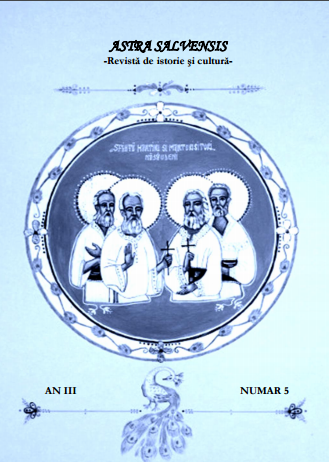Biserica Ortodoxă şi Catolică şi asistenţa socială în Ţările române în Evul Mediu şi Epoca premodernă
The Catholic and Orthodox Church and Social Work in the Romanian Countries in the Middle Ages and Pre-Modern Era
Author(s): Sorin Ovidiu BulboacăSubject(s): History
Published by: Asociaţiunea Transilvană pentru Literatura Română şi Cultura Poporului Român - ASTRA
Keywords: the poor man; social welfare; confraternities; brotherhoods; charitable institution;
Summary/Abstract: Every Catholic and Orthodox Church, each parish had a ,,mercy box” in which the faithful would put money every Sunday for poor maintenance and for those who could not work, being sick or infirm. In medieval times, assistance and protection were provided essentially by the Church and the poor image of Christ has been considered as a cred character. The Medieval Catholic brotherhoods, with the collective exercise of religious rites, formed around an altar under the protection of a saint, acquired charitable indisputable merits. These social events were a part of the exercise of religious acts, but were not their main purpose. The Catholic confraternities offered citizens safety and mutual aid for sick, poor, pilgrims, prisoners. Between 1250 and 1500, the Catholic brotherhoods transformed the cities in the West, becoming popular because they offered their members a wider social environment and social protection: by helping the poor fellow, financial ending policy or by obtaining a cashier in a hospital bed used (or not) by the same religious group. Also these Catholic brotherhoods provided aid for needy and sick brethren, funeral assistance, including financial aid for relatives of those who passed on. In Transylvania, an important role in social welfare where the Catholic brotherhoods had, were in cities as Sibiu, Braşov, Cluj, Sighişoara, Bistriţa, Mediaş, etc. Another important action that the Medieval Catholic brotherhoods members tried to became a link that would unite all Christians, based on solidarity. The Brotherhood of Corpus Christi in Sibiu (14th-16th centuries) performed funeral rituals for the poor and needy from the city as well as for aliens who happened to succumb in Sibiu, with the same solemnity that was given to deceased brotherhood members, at its expense.
Journal: Astra Salvensis - revista de istorie si cultura
- Issue Year: 2015
- Issue No: 5
- Page Range: 9-19
- Page Count: 11

